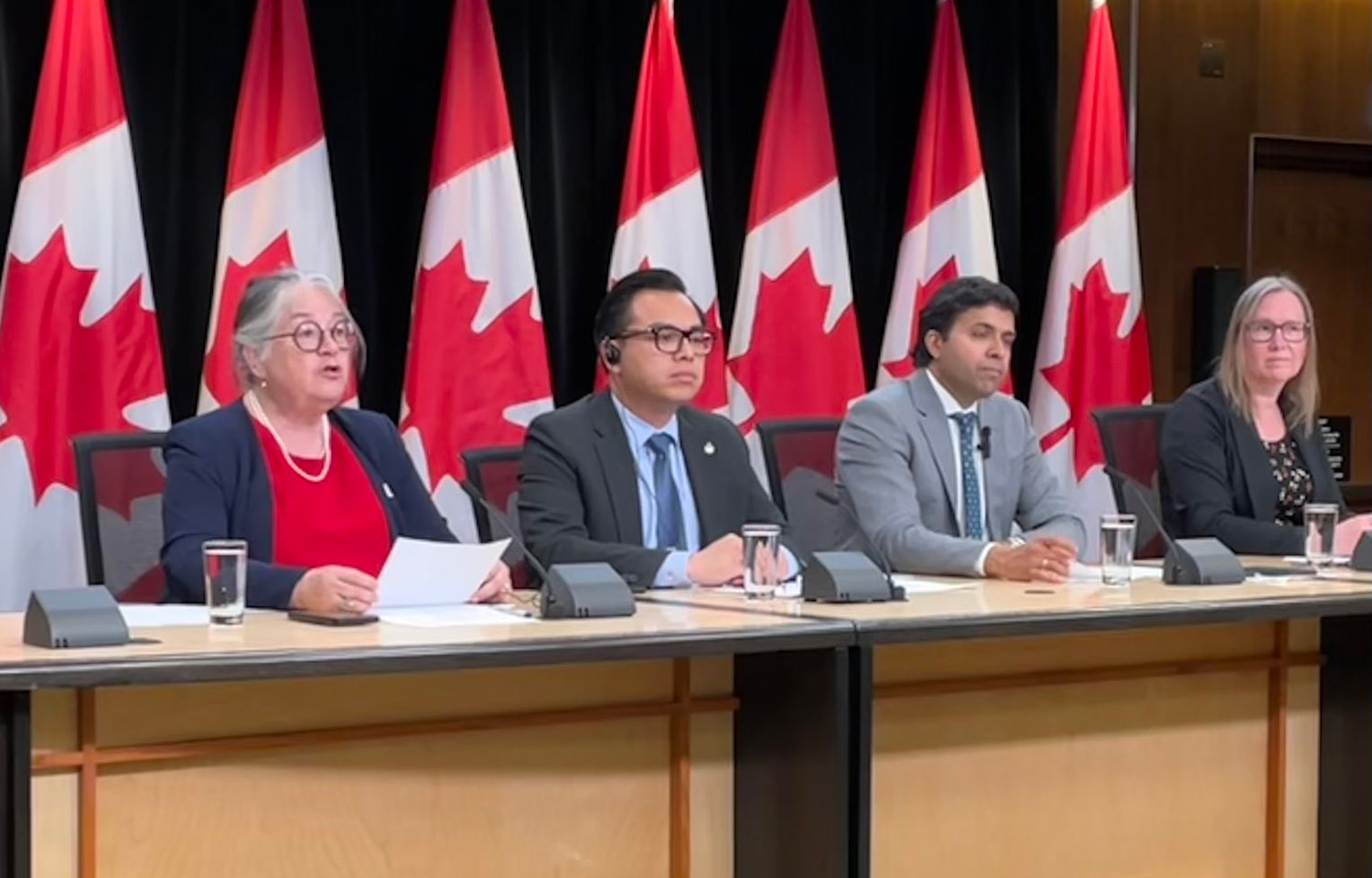Canada plans to ban all open net-pen salmon aquaculture in the province of British Columbia by 30 June 2029 in a push to transition the industry to closed-pen and land-based operations.
The move, announced 19 June by Canadian Minister of Fisheries, Oceans, and the Canadian Coast Guard Diane Lebouthillier, serves as both an extension of a 30 June 2024 deadline on salmon-farming licenses in the province and a time limit for companies farming salmon in the region. It also fulfills a party goal of Canadian Prime Minister Justin Trudeau’s Liberal Party, which called for a transition away from open net-pen salmon farming in B.C.
“The government is firmly committed to taking concrete steps to protect wild Pacific salmon,” Lebouthillier said. “Today, I'm announcing the essence of a responsible, realistic, and achievable transition that ensures the protection of wild species, food security, and the vital economic development of British Columbia's First Nations, coastal communities, and others, as we keep working toward a final transition plan by 2025.”
The five-year renewal period will come with stricter conditions, ostensibly designed to protect wild salmon in the region through better management of sea lice and reporting requirements, according to the Canadian Department of Fisheries and Oceans (DFO).
“These conditions will strengthen protections for wild species and the marine environment while ensuring aquaculture facilities can operate safely during this transition period,” it said.
The DFO also said that the new plan was finalized through extensive consultations with relevant groups, including salmon farmers and First Nations groups.
However, the decision was immediately criticized as neither realistic nor achievable by salmon-farming companies and other companies supporting the industry in B.C. Net-pen salmon farming groups, including the BC Salmon Farmers Association (BCSFA), were calling for at least a six-year renewal to allow companies to have some certainty for a full cycle of salmon production – from broodstock to egg to harvest.
Now, the industry is worried it is facing a shorter time limit rife with increased operational costs resulting from the stricter protocols.
“This decision will signal continued industry stagnation and uncertainty, resulting in a continued lack of investor confidence in our B.C. aquaculture sector,” Skretting North America Managing Director Trevor Stanley said in a release. “The result is reduced investment in innovation, ultimately forcing us to look for growth and investment opportunities in other progressive aquaculture sectors.”
BCSFA said the “unrealistic” time period for the transition is undermining the Canadian government’s commitment to science-based decision-making. A study done by the DFO found little connection between salmon aquaculture and sea lice on wild salmon; though other scientists claimed the study was flawed, the government has yet to prove any link between salmon aquaculture and declines in wild salmon. So
“It is disappointing to learn that the Liberal government has yet again turned its back on coastal communities who rely heavily on salmon farming to drive their fractured economies. In doing so, the government has chosen to ignore science and their own commitments to truth and reconciliation,” Brown’s Bay Packing Co. Co-Owner and CEO Dave Stover said. “The decision is a political one – a desperate attempt to save a few ridings in Vancouver.”
A study commissioned by the British Columbia Ministry of Agriculture and Food and performed by Counterpoint Consulting also found the government’s plan to transition to land-based or closed-pen salmon farming isn’t viable economically, with Cermaq CEO Steven Rafferty claiming the five-year time limit only creates further uncertainty for the company.
“Throughout our meetings and consultations, we have explained to various departments within the Canadian government why land-based and closed-containment-based farming cannot replace current seawater production in a period as short as five years,” he said. “Unfortunately, our arguments – and those of the entire industry – have been rejected. The objective the government has put forward in front of us cannot be delivered in this timeframe and is, in fact, logistically impossible in remote coastal areas due to lack of suitable land or supporting infrastructure.”
Rafferty said the move will impact communities and the company’s Indigenous partners in the region. The company said the sector has lost 1,500 jobs since the plan was announced.
“Over the last four years, we have worked hard to meaningfully engage in the process set out by the DFO, in support of a healthy salmon-farming sector and healthy wild salmon populations,” Cermaq Canada Managing Director David Kiemele said. “It is extremely disappointing to see that engagement has not resulted in a better understanding of our company and the realities of the limitations of certain innovation pathways.”
Mowi, the largest salmon-farming company in the world, said it is waiting for the full draft plan to make a full statement but that it was disappointed by the announcement. It has 46 seawater licenses in Canada, has harvested 19,000 gross-weight tons of salmon, and its Canada West division revenues totaled EUR 149 million (USD 159 million) in 2023.
“The unfortunate announcement comes despite our efforts to pave the way for future sustainable growth and employment, including a thorough consultation process involving multiple stakeholders, as well as gaining strong support over the years from the local communities in which we operate,” Mowi said. “We are disappointed with the decision since traditional marine salmon farming is absolutely sustainable; thus, the basis for the decision lacks scientific merit.”
Grieg Seafood it will cease investing in B.C. until the ...








